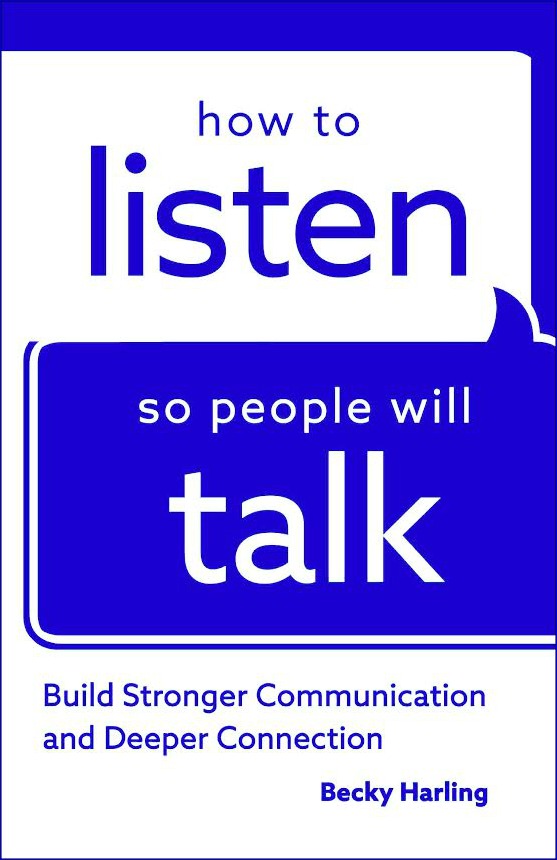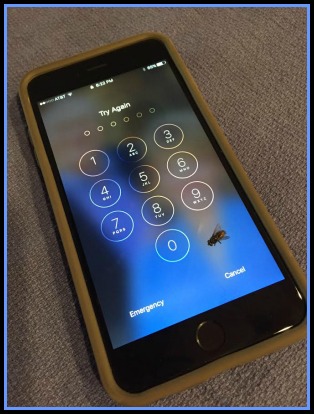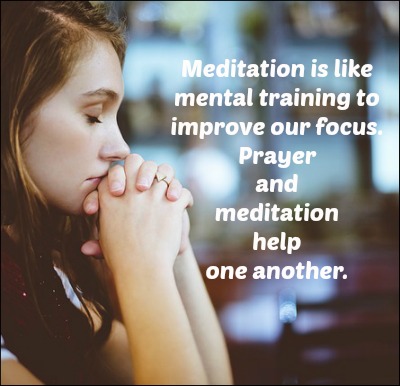How Well Do YOU Listen?
Becky Harling is one of the most practical women I know, often tackling topics women need to hear like "performance" and dealing with our emotional scripts. In this Relationship UPGRADE, she asks us to honestly evaluate our listening skills.

"I remember well when I asked my teenage daughter, 'Honey, do you think I listen well?' Honestly," Becky says, "I was expecting rave reviews, but what I received was something entirely different"
I (Dawn) think Becky was so brave to ask her teenager for input. But what I admire most is her desire to act on that input!
Becky continues . . .
Mental note to self: Don’t ask your kids what they think unless you’re prepared for the answer!
There was a long pause, and then Bethany said,
“Well… sometimes you listen well… but, you seem distracted a lot, you interrupt me a lot and you dive in with your own story and you give me way too much advice!
"Mom, I just want to feel heard!”
Wow!
That night in bed, I had a lot to consider and I remember wrestling in prayer.
But finally, after several sleepless hours, I prayed,
“Lord, I want my daughter to feel heard and loved. Help me to change. Show me how to work on my listening skills so that those I loved feel heard.”
Author David Augsburger wrote, “Being heard is so close to being loved that they are almost indistinguishable.”
God created us for relationship with Him and with others. And that means we need to value our relationships by listening attentively.
Relational wisdom from Proverbs teaches us, “Let the wise listen and add to their learning” (Proverbs 1:5).
Jesus Himself warned, “Consider carefully how you listen’” (Luke8:18).
Most of us are busy and stressed out, so how do we consider carefully how we listen and take steps to improve our listening skills?
It’s not as hard as you might think. It will take practice, but there are a few steps you can take right away.
Today.
If you take these simple steps you’ll improve your listening skills immediately and those who are dear to you will feel more loved right away!
Simple Steps:
1. Silence Your Inner Fixer.
Have you noticed how tempting it is to try to fix other people’s problems? I’ll give you a secret. People don’t want you to fix their problems. They want you to listen. They want to feel heard and validated that their situation is difficult and challenging.
So next time, you’re tempted, ask a question instead. Which brings me to my second simple step.
2. Learn how to ask questions.
Any great conversationalist knows how to ask great questions. Jesus Himself was the Master question asker—“Who do you say I Am?” “What do you want me to do for you?”—and it’s a pretty easy skill to learn.
Before you meet a friend for coffee, think of three questions you’ll ask so that they’re already in your head. Do the same whenever you attend a meeting where you’ll meet someone new.
Think through a few great questions and even write them on an index card. Then look at the card right before you go into your meeting so the questions will be fresh in your mind. Watch and wait for the opportunity to ask a question.
Hey, if you need help in the question-asking department, I’ve got good news for you! I’ve got a great free gift called, How to Get the Conversation Started up on my website. It’s loaded with great questions you can use in any situation!
3. Let Go of Distractions.
Don’t buy into the myth of multi-tasking. It will hurt your relationships.
When you’re with someone, discipline yourself to be fully present to the conversation.
Turn off or silence your cell phone. Shut down your computer and turn off the T.V. and simply listen to the other person. Seek to understand their heart and what’s behind the words they are speaking.
The one way it’s valuable to multi-task is to pray for wisdom as the other person is talking. Pray that the Holy Spirit will set a guard over your mouth and help you to speak only what’s helpful.
4. Ask.
Finally, ASK.
Dare to ask at least two people you love, “How well do you think I listen?”
However they reply, don’t push back. Simply receive and then take it to the Lord and ask Him to change you!
Which of these simple steps might UPGRADE your listening skills today? Choose one, and "practice" on your family and friends. Who knows ... the Lord might open new doors to better relationships.
Becky Harling. Authentic. Passionate. Funny. Insightful. Becky is a frequent speaker at 
 conferences, retreats, and other venues. She is the author of Rewriting Your Emotional Script, Freedom from Performing, The 30 Day Praise Challenge and The 30 Day Praise Challenge for Parents. Becky is married to Steve Harling and has four adult kids and five grandkids. Visit her website and blog!
conferences, retreats, and other venues. She is the author of Rewriting Your Emotional Script, Freedom from Performing, The 30 Day Praise Challenge and The 30 Day Praise Challenge for Parents. Becky is married to Steve Harling and has four adult kids and five grandkids. Visit her website and blog!
Graphic adapted, courtesty of StockSnap at Pixabay.
 Post a Comment → Posted on
Post a Comment → Posted on  Thursday, August 10, 2017 at 8:11AM
Thursday, August 10, 2017 at 8:11AM  Asking Questions,
Asking Questions,  Attentiveness,
Attentiveness,  Becky Harling,
Becky Harling,  Communication,
Communication,  Conversations,
Conversations,  Listening,
Listening,  Listening Well,
Listening Well,  Upgrade with Dawn Upgrade Your Life
Upgrade with Dawn Upgrade Your Life  Communication,
Communication,  Relationships
Relationships 







